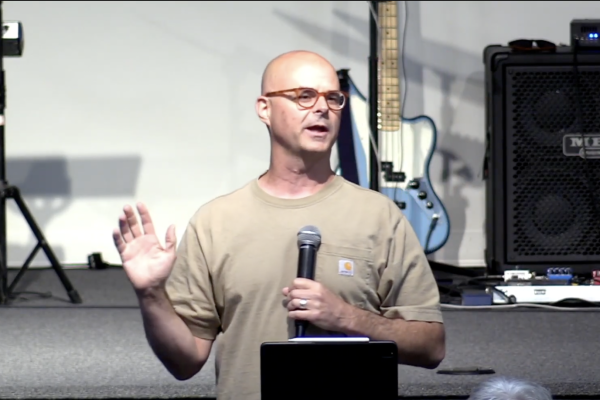An appeal to my cessationist brothers

The desire of this note is to appeal to those who hold to cessationist doctrine; who believe the miraculous gifts of the Spirit are not operational in the Church today. My hope is that this does not come off as an attack, but as an appeal or open letter. Perhaps, opening your heart for further evaluation of continuationism.
I’ve noticed in my discussion with those who hold to cessationist doctrines a few words that typically draw criticism, one particular word being, “experience.” Now, my theology indeed is affected by experience but this in no way ought to devalue it, if, and only if, it can be supported by Scripture.
I would like to address this rebuttal first. When I use the word "experience," I am referring to a sequence of events that I’ve witnessed or partook in. The cessationist will argue that experience does not trump Scripture, which is a sentiment both the continuationist and cessationist agree on.
However, to say experience in no way can shape one’s theology is misguided. Consider a man who is in practice to become a surgeon. During his schooling, he has studied and trained for surgical operations and understands the text inside and out. Yet, once that surgeon performs his first few operations, his experience will begin to mold his understanding of his schooling. In the same way, it’s one thing for a boxer to study his opponent’s fatal right hook. It’s a whole other to catch one to the jaw in a bout. Experience can be a great tool to shape one’s understanding as long as the foundation it’s forged upon is Scripture.
In my experience, I have had many instances where I’ve seen prophetic words from my own utterances come to pass. For those who’ve had specific moments where they’ve felt the presence of God come upon them in a dream, vision, or time of worship, it can bring them to a theological crossroad.
The cessationist may say, "Your prophetic dreams are nothing more than happenstance or fragments of your mind." Or worse, they may say the devil is leading you by his will. However, in my experience, my prophetic words have brought about not only repentance, but in some cases, salvation. Scripture comes alive, “But if an unbeliever or an inquirer comes in while everyone is prophesying, they are convicted of sin and are brought under judgment by all.” (1 Cor 14:24)
What am I to say in this instance? That this prophetic word was a figment of my good will? Or I was being led by a demon?
No, the most logical conclusion is to read the message from Paul and say, “Ah, yes. This is what Paul was talking about when he was addressing prophecy, for it happened just like he said it would.”
Pertaining to the gift of tongues, when this particular gift of the Spirit operates in its capacity, I feel it triggers some of the soul's most intimate prayers (James 4:5) and is in a way “hidden communication to the Father;” a language only the believer and the Trinity can distinguish (of course enabled by the Holy Spirit). Even the believer has trouble distinguishing what his own spirit is yearning (1 Cor 14:14) yet the Father perfectly understands. Yes, I’m speaking of tongues as a hidden language, but I’m also aware of the ability to speak in foreign tongue.
In the same way as prophecy, the gift of tongues can be abused all the more. We observe those who abuse or make a spectacle of the gifts and can be prone to shape our theology not on Scripture but through our contempt for those who make a mockery of the faith. In many cessationists' rolodex is an array of off-the-wall preachers, those of the likes of Kenneth Copeland. Cessationists use examples like this as a basis for their argument I dare say more than Scripture. Abuse of a particular thing can sour one’s perception of it. Take alcohol, for example: we can admire a bride and groom toasting with champagne, yet we despise the drunkard rambling about. It is not the gift of alcohol at fault, but it is the way in which it is consumed.
I feel this is why Paul was prompted to write, “Do not despise prophecy and do not forbid speaking in tongues.” He understood that if the gift is misused, it will be something to be despised.
In my personal experience with tongues, sometimes it has come during crucial moments of spiritual battle. On the rare occasion, I’ve cast out devils, praying in tongues throws them into a sense of panic and then rage. (These stories are for another note, but the mystery of it is worth mentioning.)
Those gifted with tongues have a unique ability to work in a supernatural capacity, while other believers in the Church look at them in perplexity. This is the way I believe the Father would like the Church to work, in unity and humility, depending on one another. Yet, the Lord also establishes safeguards via discernment to protect the Church in regards to prophecy and (1 Cor 14:27) in regard to tongues (1 Cor. 14:27).
The natural question that derives from the mystery of these gifts is: Why?
Why does the Lord operate in this way? If we wish to take the strangeness from the Bible, we shall remove a good deal of it. Cessationists tend to be more of an academic mindset, and this is a compliment. However, I have observed academics do not have a good spot for strangeness; it does not file on the shelf neatly.
What I have come to believe is, perhaps when the Lord communicates mysteriously it unifies the Church. This principle can be seen in a parent relaying a message to their children. A father could simply tell his children, "I’m taking you on a trip to Disneyland!" This would surely communicate the message and be effective. However, a father could also deliver the same message while simultaneously generating unity among his family. He could bring the same children together and say, “I have given each of you bits of a message and I want you to work together to figure out what it says. I have given you all the tools you will need to figure it out, now go!”
The father in the latter example has communicated the same message, but he has also given them so much more: unity. Now, does the Lord only communicate in mystery? No, but the idea is He does. What makes the miraculous gifts different is they’re strange and require three qualities.
- Faith
- Humility
- Discernment
Faith in the sense that one must believe these gifts do operate in the modern church. One must believe they actually operate or should not expect to see anything miraculous.
Humility in the sense of trusting your brother or sister in the faith. In the same way that I’d much rather ask a dentist to remove my aching tooth than a carpenter, the Lord might rely on those who are gifted with certain abilities He has given them. The rest of the Body must not come to the conclusion the Lord is not communicating with that individual just because the Lord does not communicate in that way with them. Therefore, much humility is needed to admit that the Lord is choosing to speak with your brother or sister this way, and not you. One man may see an algebraic equation and see gibberish, while another man sees a coded message that he’s able to decipher. We should not discard the category of math because one man is not gifted in algorithms. No, we ought to rely on our gifted brother to solve these problems.
Lastly, discernment is needed. We ought to not be gullible to believe any man with “a word from God.” This is also why there are specific instructions in Corinthians to show us how to interpret and use such gifts. Additionally, the New Testament goes into great detail in several books listing the qualities of false teachers and prophets.
The Catch 22 in this case is that cessationists will not experience the miraculous because their faith does not make room for it (Romans 14:2). This is why I set out to write this appeal. Perhaps at a bare minimum, I have shown my cessationist brothers that we continuationists love the Lord and there are faithful God-fearing continuationists.
We do not like being called heretics or misguided saints. I’ve said it many times, “Either I hear the voice of the Lord, or I need a CAT scan. There’s no middle ground.”
If you’re curious to learn from some great teachers who are continuationists (or lean in that direction), here are some I would recommend: Matt Chandler, Mike Winger, John Piper, and Sam Storms. (Note: I know none of these men personally but I have learned from them on the topic of spiritual gifts.)
Will Vining is a passionate follower of Jesus. In his free time, he enjoys writing and going to the lake with his family. Follow Will on his Facebook page Will Vining





















